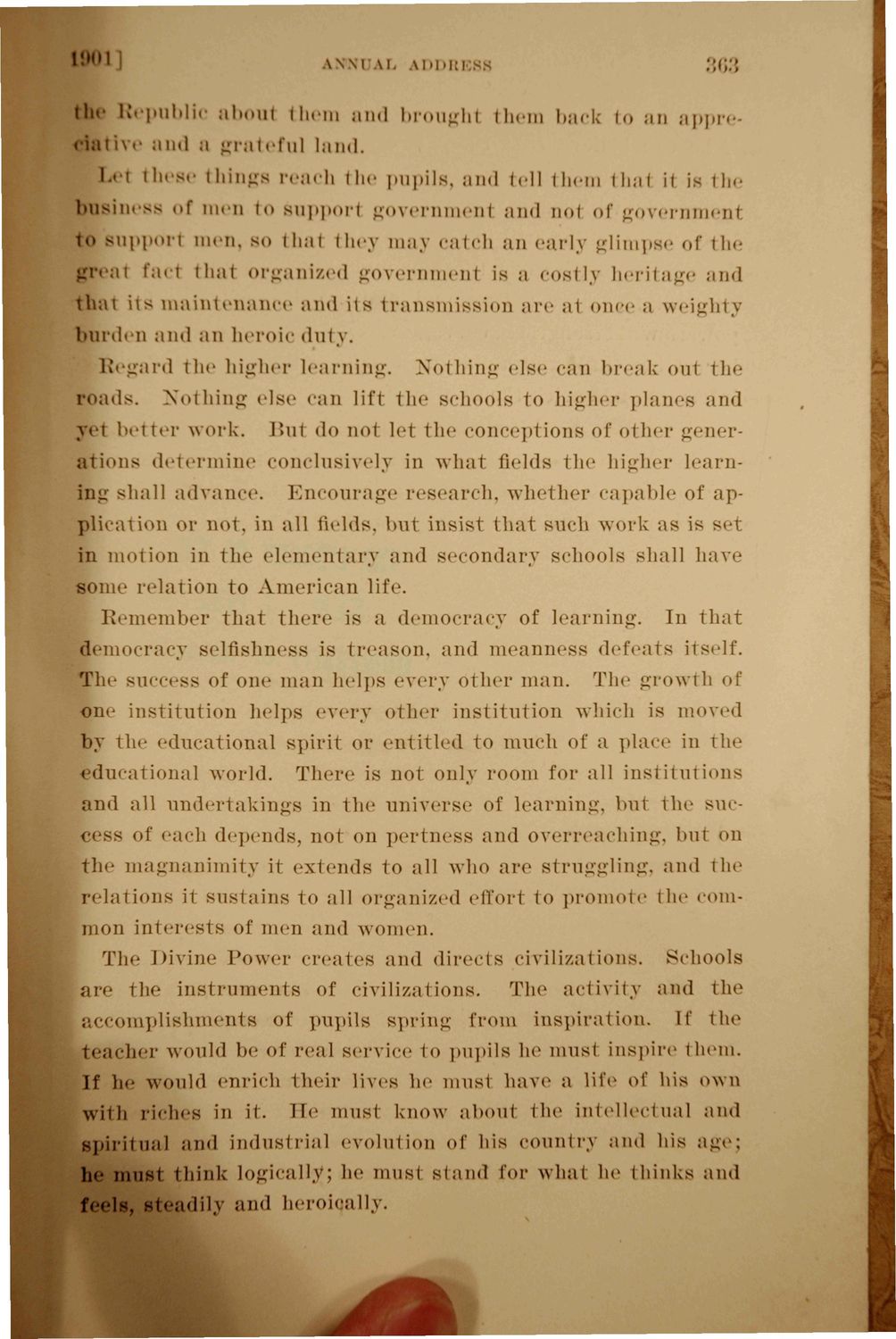| |
| |
Caption: Booklet - Element of Inspiration in the Schools (1902)
This is a reduced-resolution page image for fast online browsing.

EXTRACTED TEXT FROM PAGE:
'• A W I AI. ADDIUCSS ::< public aboul them and broughl them back to an appr< i lath ind Q grateful land. I i thee things reach the pupils, and tell them thai it is th bnsii] a of men to support governmenl and QO1 of government to support men, so thai they may catch an early -limps.- of the ii t'ari thai organized governmenl is a costly heritage and thai its maintenance and its transmission are ai once a weighty burih n and an heroic dul v. Ii- ai-d the higher learning. Nothing else can break out the roads. Nothing rise can lift the schools to higher planes and yel better work. Bu1 do not let the conceptions of other generations determine conclusively in what fields the higher learning shall advance. Encourage research, whether capable of application or not, in all fields, but insist that such work as is set in motion in the elementary and secondary schools shall have sonic relation to American life. Remember that there is a democracy of learning. In that democracy selfishness is treason, and meanness defeats itself. The success < f one man helps every other man. The growth of > one institution helps every other institution which is moved by the educational spirit or entitled to much of a place in tli educational world. There is not only room for all institutions and all undertakings in the universe of learning, bin the success of each depends, not on pertness and overreaching, Inn en the magnanimity ii extends to all who are struggling, and the relations it susiains to all organized effort to promote the common interests of men and women. The Divine Power creates and directs civilizations. Schools are the instruments of civilizations. The activity and the accomplishments of pupils spring from inspiration, [f the t< acher would be of real service to pupils he musl inspire them. A* I If he would e n r i c h (heir lives he m u s l h a v e a life of his o w n with riches in it. He must know about the intellectual and spiritual and industrial evolution of ids country and his agej he m u s t t h i n k logically; he must s t a n d for whal he t h i n k s and feeds, Steadily and heroically.
| |